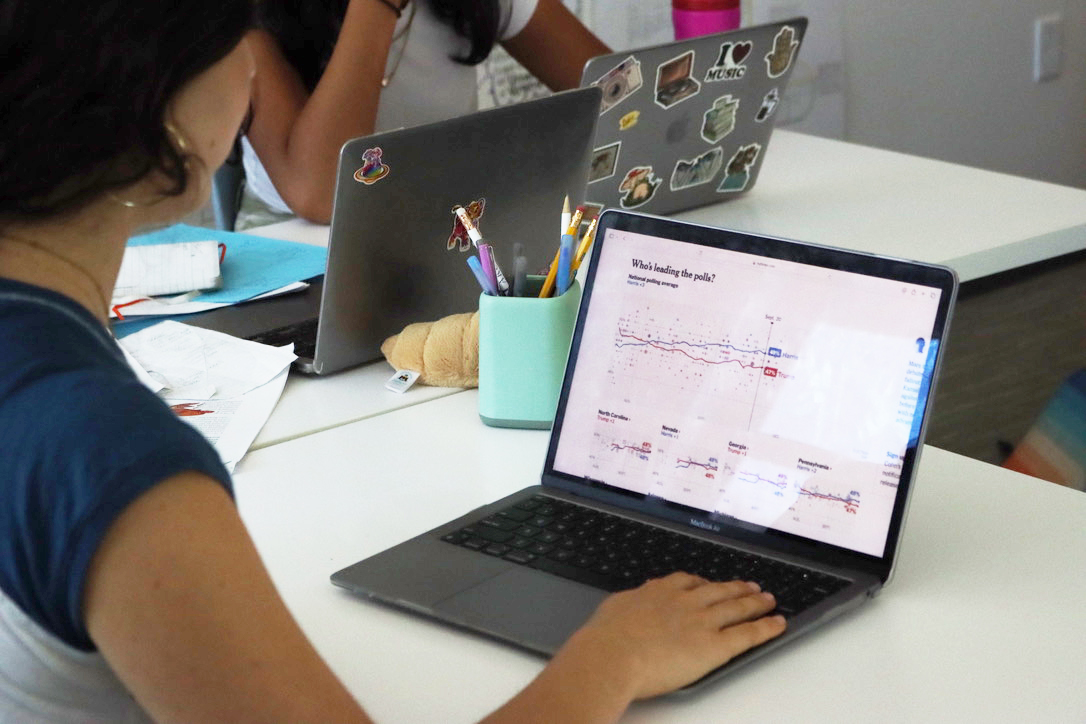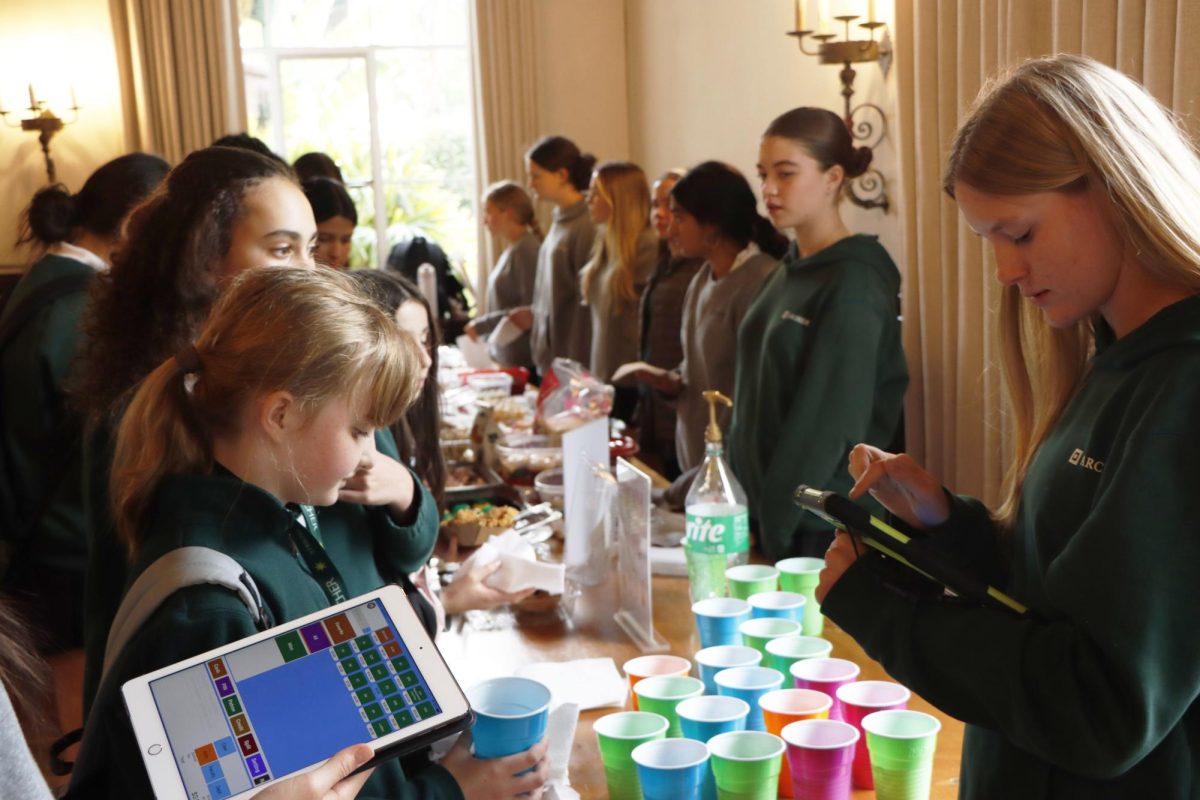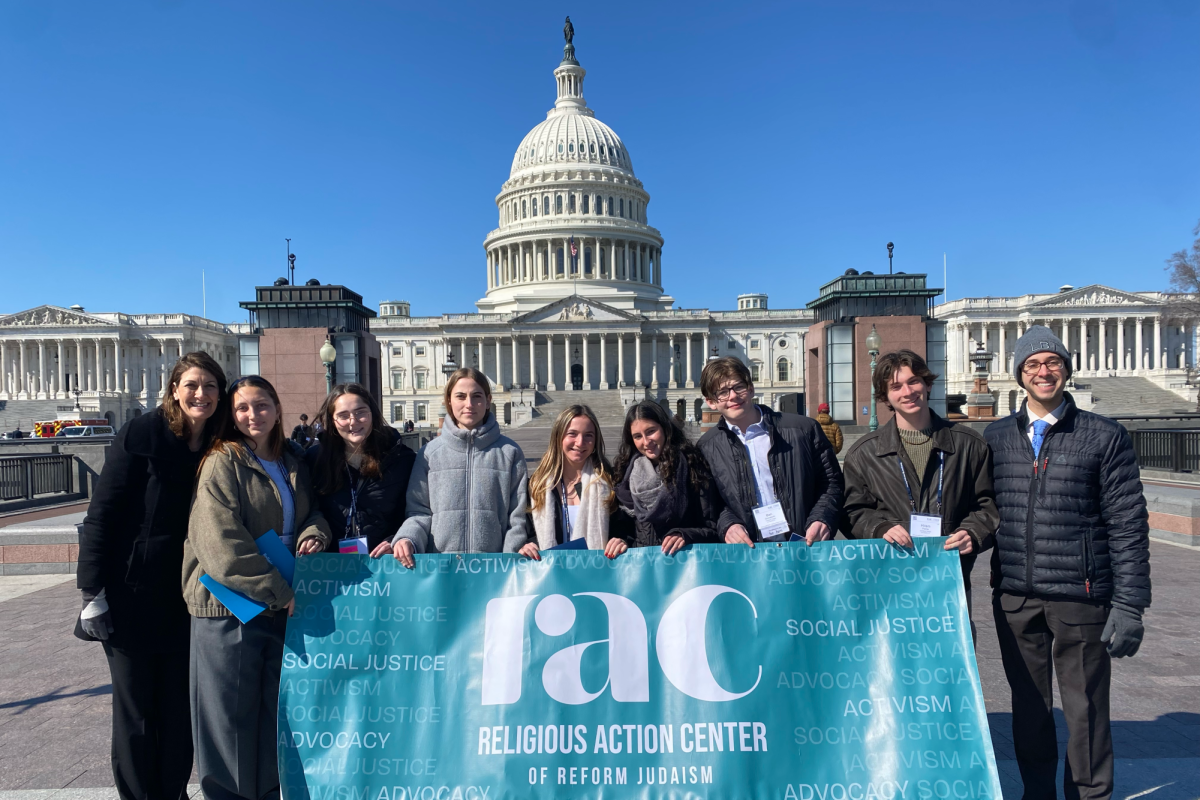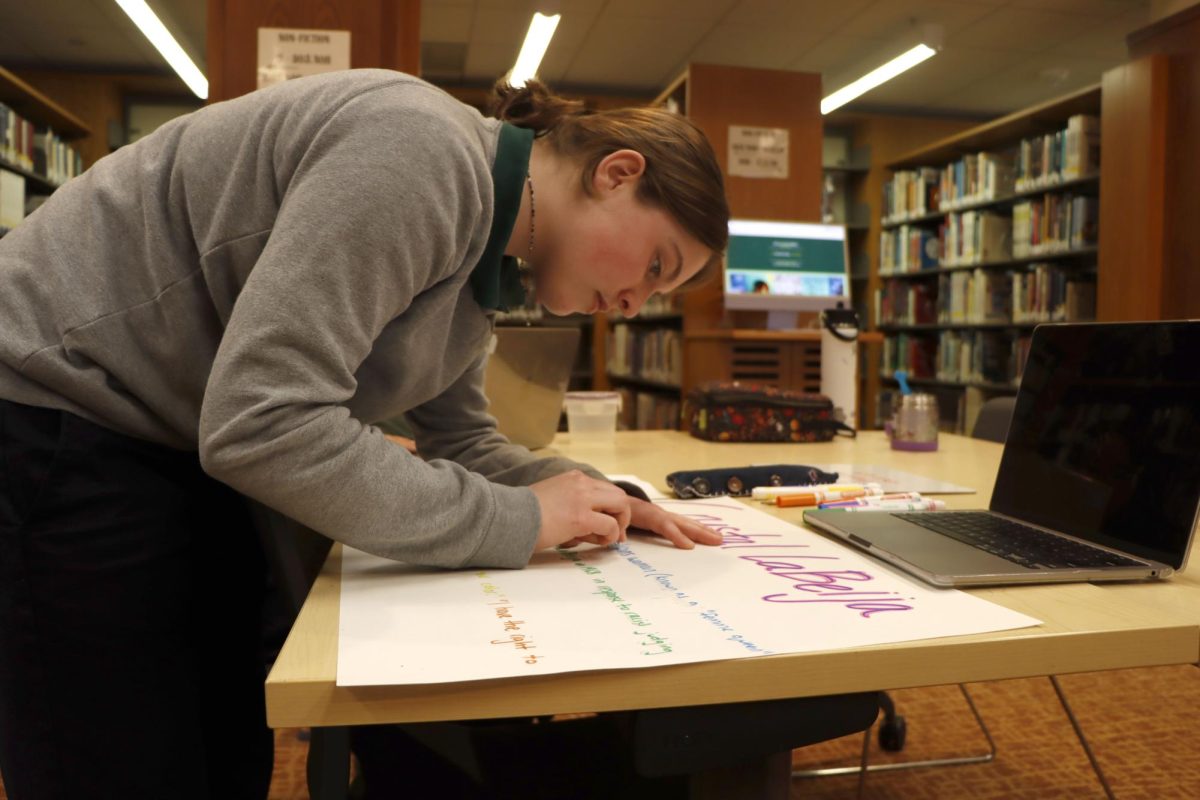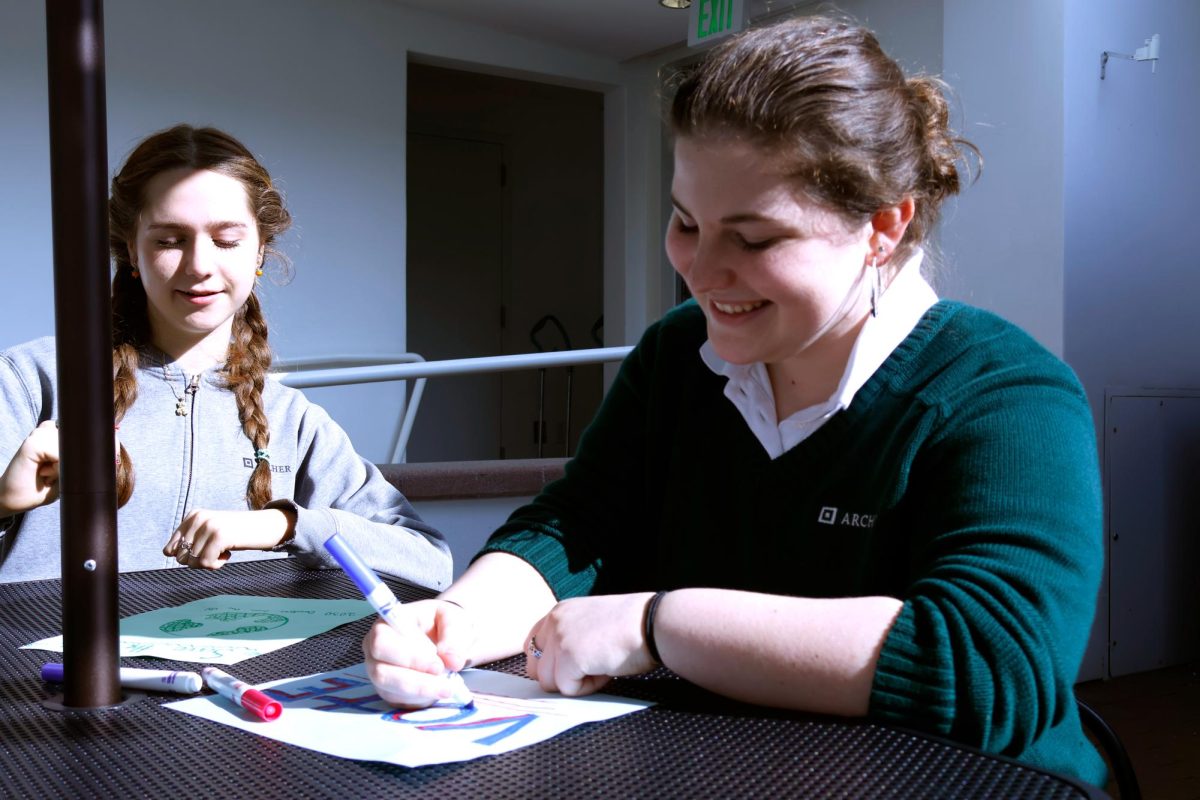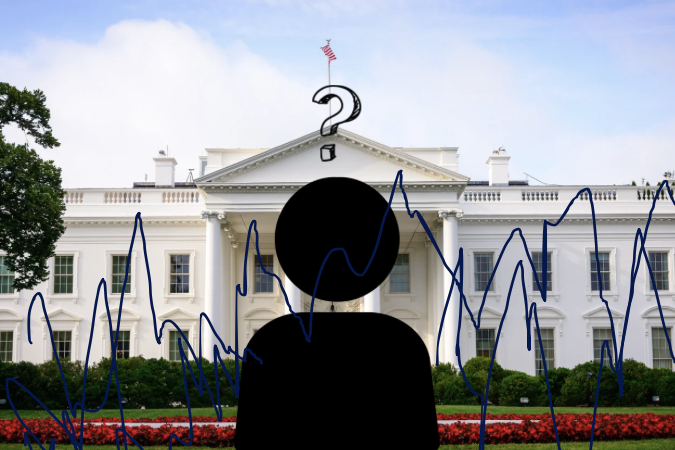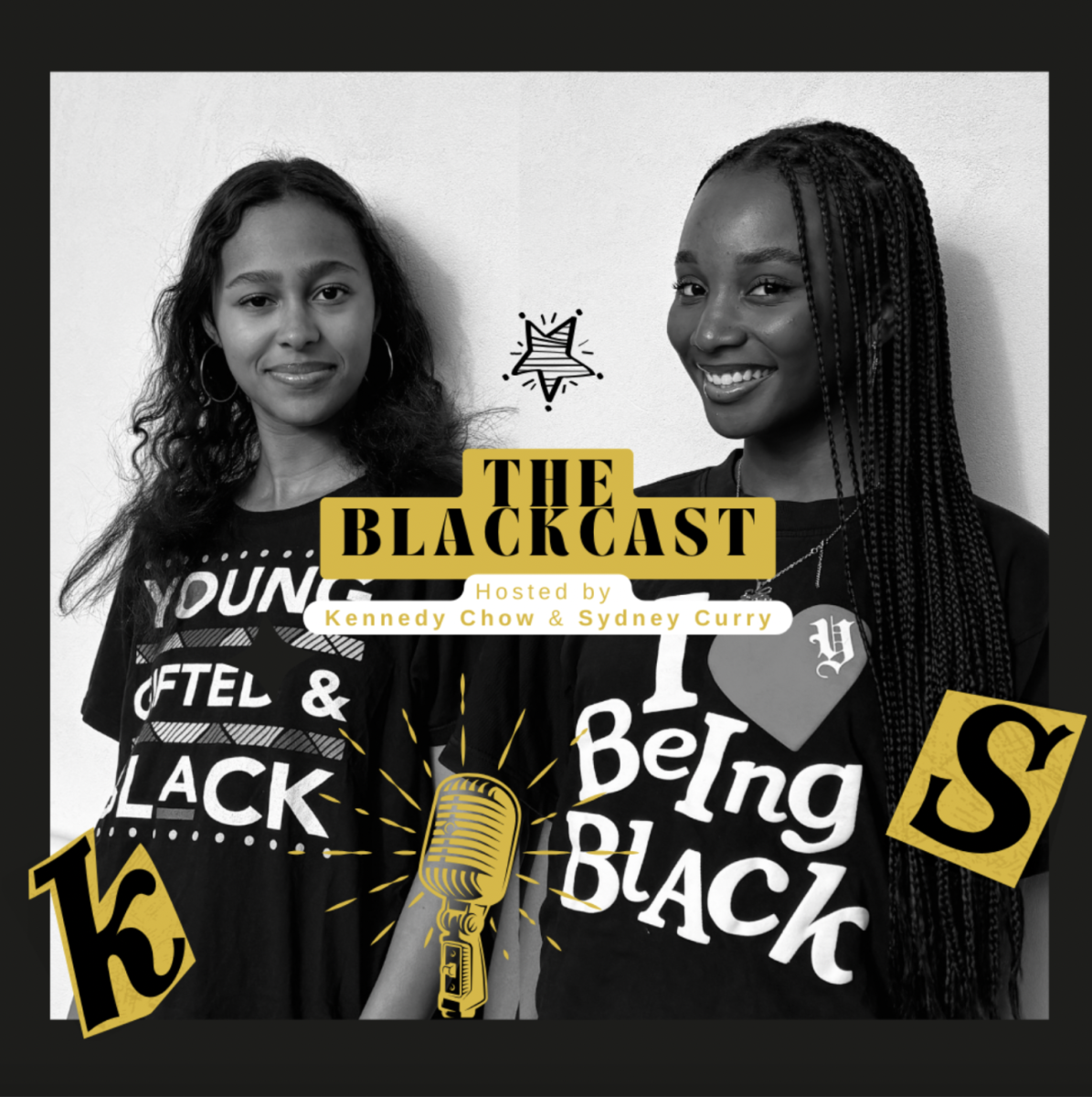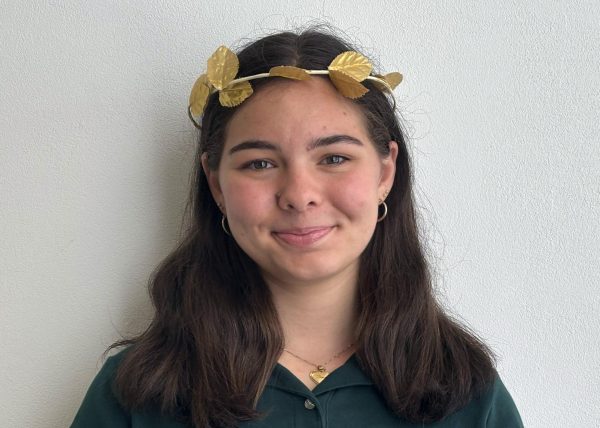In less than a month, Americans will head to the voting polls to determine who will assume the presidency once President Joe Biden leaves office. A vote cast for Democratic presidential candidate Vice President Kamala Harris envisions an entirely different future for the country than one cast for Republican presidential candidate former president Donald Trump.
Yet, despite their stark polarity as candidates, recent polls between Harris and Trump remain ineffably tight.
According to CNN, the race toward the Oval Office between Harris and Trump is growing closer by the day. With support for Harris rooted in her character-based appeal to some voters, Trump’s rests on his following and stances on the economy that serve his target demographic of upper- and middle-class white people. This conclusion is drawn based on a recent CNN poll conducted by SSRS, which found an overall 47% support margin for Trump, compared to a 48% support margin for Harris.
As of Tuesday, Oct. 15, the national polling average provided by the New York Times depicts Harris narrowly leading Trump nationwide, with her 49% forecasted win barely shadowing her opponent’s 47%.
For Grace Whitney (’25), this raises what she said is an obvious, yet flummoxing, question: If these two presidential candidates are so drastically different, how is it possible for the polls to be so impossibly close?
Whitney said her question specifically pertains to how former president Trump remains highly ranked in the polls considering his tendency to blatantly lie to the public. She said that a possible explanation for this is what she views as his unique ability to manipulate his followers.
“The problem is that [Trump] has tapped into a demographic that [thinks they] need a ‘strong man’, and he has completely altered their idea of what a good candidate is,” Whitney said. “When you have someone say something with confidence, you are more likely to believe them. He just knocks out anyone in his path ruthlessly, and in the press … without any remorse, which makes him seem like a ‘strong man.'”
Whitney added an additional piece of reasoning behind Trump’s status in the polls could be based on what she said is a tacit sense of entitlement among some white, upper- and middle-class Americans.
“People think that he … will make white upper- and middle-class Americans feel, ‘special’ again because there are a lot of conservative or conservative-leaning white people in this country who felt as though the ‘leveling of the playing field’ in the last 20-30, years … was disenfranchising them,” Whitney said. “And so when they have this candidate come up, who says, ‘I’m gonna fight for you, you are my number one priority,’ they are very prone to be like, ‘Yeah, of course … I’m going to vote for you … It’s what I deserve.”
With respect to the difference in beliefs between members of the Democratic and Republican parties, Sophia Bromwich (’25) said it is astonishing how close the polls remain. She added that unity is void throughout the country, largely because of how opinionated people can be about politics.
“Honestly, I just think it’s really interesting that, despite their stark differences, the polls are pretty much the same,” Bromwich said. “I mean, it says a lot about this day and age where even though [the country] is two different worlds, it’s so equal but separate, which [is] weird to think about.”
On a similar note, Alexa Grant (’26) said she, too, has observed the continual political polarization throughout the country. She said this divide has caused further separation between the Democratic and Republican parties.
“There’s a lot of people on both sides who have become very extreme,” Grant said. “So there’s really not an in-between for people that … [either] are voting for Trump or …. voting for Kamala … So I guess I would say that’s why it’s 50/50, because people are going to vote for their party rather than their policies.”
Similarly, Bromwich expressed her concern about the country’s political divide as it pertains to incoming election results.
“It’s also kind of concerning if we want to run an equal and balanced country,” Bromwich said. “Obviously either way the election turns out someone’s going to be mad, and half the country’s not going to be up to it, which is not the best position to be in.”
Whitney said observing the polls causes her more stress than it is worth. She said it does little to offer her peace of mind, especially based on how divided the country is politically.
“It’s very upsetting to look at. I really don’t understand how you can watch everything that Trump has done and still be able to excuse it and say that you’re fighting for our democracy. I don’t understand how that is possible on a psychological level,” Whitney said. “I also just don’t understand it on the basis of empathy. It’s one thing to have people who disagree with you about politics … but it’s a completely other thing where it feels like … to be supporting this guy is going against basic empathy and humanity because that’s what it really feels like right now. So when I see how close the polls are, I find it very bleak and depressing.”
Bearing Whitney’s point in mind, Grant said first-time voters of Generation Z have the potential to galvanize voters into being more open-minded about American politics, hopefully catalyzing unity and open-mindedness across parties.
“People in our age range are a lot more conscious and, I think, more aware of [political polarization]. There’s no ‘one or the other,’ but there’s a middle ground, and there’s a nuance to everything, rather than, I think, older generations that aren’t really open to change,” Grant said. “So, I have hope that it will change now that our age group is going to start coming into jobs in politics and shape the country.”



